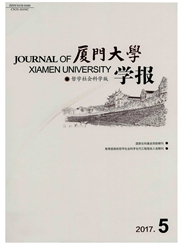

 中文摘要:
中文摘要:
随着家族上市公司的大量涌现,如何有效解决家族上市公司委托代理问题日益成为监管部门和学界研究的关注重点.结合我国特殊的制度背景以及家族上市公司的发展现状和特征,以2007-2010年中国A股市场民营上市公司为研究样本,可对中国家族上市公司与非家族上市公司在代理成本方面存在的差异,以及我国家族上市公司管理层持股对代理成本的作用机制进行实证检验.研究结果表明,管理层持股在家族企业中起到降低一类代理成本的作用,但作用显著小于其在非家族企业中的作用;家族企业引入职业经理人后,相对于家族化管理的家族企业,管理层持股降低代理成本的作用在职业化管理的家族企业中被强化.由此可见,家族企业特有机制与管理层持股机制具有一定的替代作用,同时,管理层持股有助于家族上市公司降低一类代理成本,该作用在职业化管理的家族上市公司中更为显著.
 英文摘要:
英文摘要:
With more and more family companies going public in China, how to effectively solve the problem of agency for such companies has become a major concern for governmental supervision departments and researchers alike. This paper looks into the particular context of China's economic institution and the current development and characteristics of family companies that have gone public and takes Chinese A-share private companies that went public between 2007 and 2010 as samples to carry out an empirical study of differences in the cost of agency between family companies and non-family compa- nies and the effect of ownership at the management level in family companies on the cost of agency. Our results show that ownership at the management level in family companies can reduce the cost of Type-I agency but this effect is significantly smaller than that of non-family companies, and that this effect is greatly enhanced when professional management is intro- duced into family companies. It is, therefore, concluded that the particular mechanism of family companies the mechanism of ownership at the management level have the effect of substitution and that, meanwhile, ownership at the management level can reduce the cost of Type-I agency for family companies, especially those that have employed the mode of professional management.
 同期刊论文项目
同期刊论文项目
 同项目期刊论文
同项目期刊论文
 期刊信息
期刊信息
